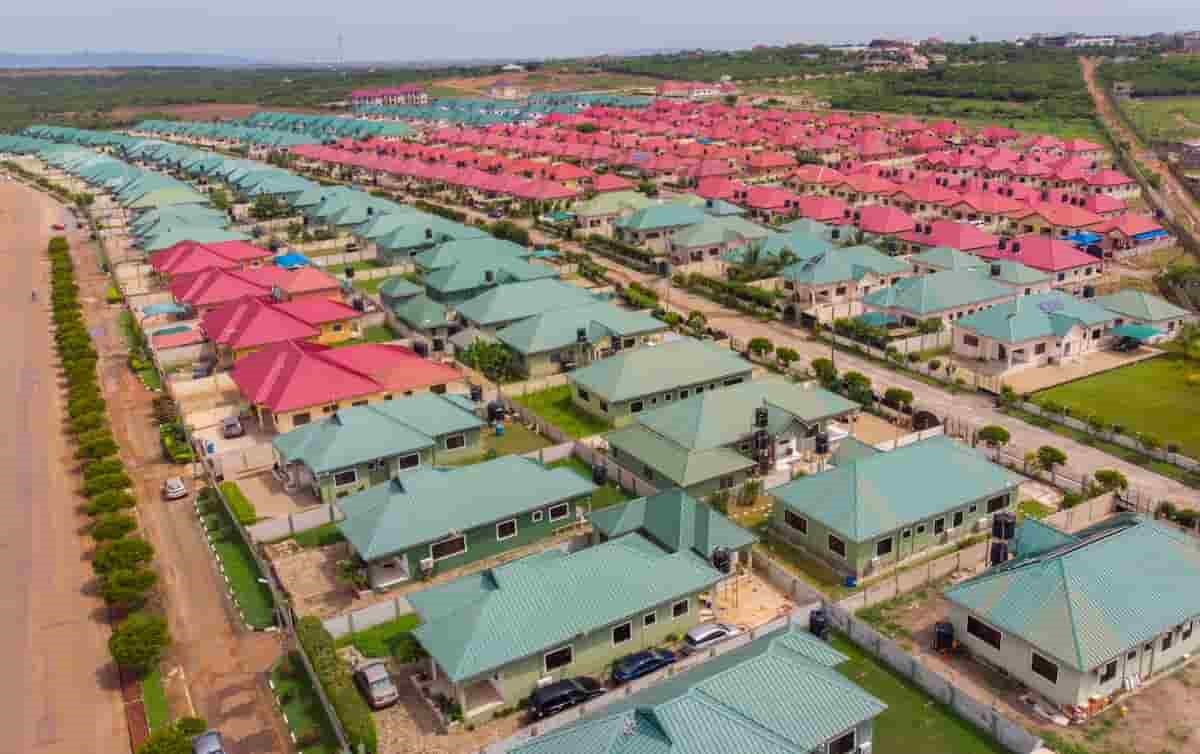4 Types of Properties to Invest in Ghana

4 Types of Properties to Invest in Ghana
4 Types of Properties to Invest in Ghana
Investing in real estate can be a lucrative venture, and
Ghana provides a promising market for property
investment. With its growing economy, stable political environment, and
increasing urbanization, Ghana offers various opportunities for investors
looking to diversify their portfolios. In this article, we will explore the 4 types of properties you should
consider investing in Ghana, namely
residential properties, commercial properties, industrial properties, and land
investments. We will also discuss essential factors to consider before making
any investment decisions.
Overview of the Ghanaian Real Estate Market
Before delving into the types of properties to invest in,
let's first gain a general understanding of the Ghanaian real estate market.
Ghana's urban centers, such as Accra, Kumasi, and Takoradi, have experienced
rapid development, leading to increased demand for housing and commercial
spaces. This demand is driven by factors like population growth, urbanization,
the influx of tourists and expatriates, and the expanding middle class.
Residential Properties

Residential properties are a popular choice for investors in
Ghana. The country's housing deficit presents an opportunity for those
interested in the rental market or selling properties to the growing
middle-class population. Two primary types of residential properties to
consider are single-family homes and apartments/condominiums.
Single-Family Homes
Investing in single-family homes can offer stable rental
income and potential capital appreciation. These properties cater to families
and individuals seeking more space and privacy. Locations close to amenities,
such as schools, hospitals, and shopping centers, tend to attract higher
demand.
Apartments and Condominiums
With the increasing urbanization and lifestyle preferences
of young professionals and expatriates, apartments and condominiums have become
sought-after investment options. These properties provide convenience,
security, and amenities such as gyms and swimming pools. Investing in
well-located apartments or condominiums can yield attractive rental returns.
Commercial Properties

Commercial properties in Ghana present an opportunity to tap
into the thriving business sector. As the country experiences economic growth,
demand for office and retail spaces is on the rise.
Office Spaces
Major cities like Accra are hubs for business activities,
making office spaces an attractive investment. Companies, both local and
multinational, seek modern and well-equipped office spaces that can accommodate
their growing workforce. Investing in office spaces located in prime business
districts can provide steady rental income and potential long-term appreciation.
Retail Spaces
Ghana's retail sector is experiencing significant growth due
to changing consumer behaviors and increasing disposable incomes. Retail
spaces, such as shopping malls and retail centers, offer opportunities for
investors to capitalize on the demand for modern retail experiences. Investing
in well-located retail properties can yield attractive rental yields and
benefit from the growth of the retail sector.
Industrial Properties

Investing in industrial properties can be a viable option
for investors looking to tap into Ghana's growing manufacturing and logistics
industries.
Warehouses
With the expansion of trade and the need for efficient
storage and distribution, warehouses are in high demand. Investors can consider
acquiring or developing warehouses in strategic locations with good
connectivity to major transportation routes. Warehouses offer stable rental
income and potential appreciation as the demand for logistics and storage facilities
increases.
Manufacturing Facilities
Ghana's government has been actively promoting
industrialization and attracting manufacturing companies to invest in the
country. Investing in manufacturing facilities can provide opportunities for
long-term lease agreements or even partnerships with local businesses. As Ghana
continues to focus on industrial development, investing in manufacturing
facilities can be a lucrative option for investors.
Land Investments

Investing in land can be a profitable long-term strategy in
Ghana, especially as the country continues to experience urbanization and
infrastructural development.
Agricultural Land
Ghana has vast arable land suitable for agriculture, making
agricultural land investments an attractive option. Investing in agricultural
land can involve leasing the land to farmers or participating in agricultural
ventures. With the increasing demand for food security and agricultural
products, investing in agricultural land can provide stable returns and
potential capital appreciation.
Vacant Land for Development
As urban areas expand, there is a growing need for
residential, commercial, and mixed-use developments. Investing in vacant land
for development can be a lucrative option for investors with a long-term
vision. Conducting thorough due diligence on zoning regulations, infrastructure
plans, and market demand is essential when considering land investments.
Factors to Consider When Investing in Ghanaian
Properties
While exploring different types of properties to invest in
Ghana, it is crucial to consider several factors that can impact the success of
your investment.
- Location: The location of the property plays a significant
role in its desirability and potential returns. Consider properties in
areas with good connectivity, amenities, and potential for future
development.
- Economic Growth and Stability: Ghana's economic growth and
stability contribute to the attractiveness of property investments. Look
for areas with a strong economy, job opportunities, and a favorable
business environment.
- Legal Framework: Familiarize yourself with the legal processes
and regulations involved in property investment in Ghana. Seek
professional advice to ensure compliance with local laws and protect your
investment.
- Infrastructure Development: Infrastructure development, such
as transportation networks, utilities, and social amenities, can
significantly impact property values. Investing in areas with ongoing or
planned infrastructure projects can lead to future appreciation.
- Rental Yield and Capital Appreciation: Evaluate the potential
rental income and capital appreciation of the property. Consider
historical trends, market demand, and rental yields in the area.
Investing in Ghanaian properties offers a range of
opportunities for investors seeking diversification and attractive returns.
Whether you choose residential properties, commercial properties,
industrial properties, or land investments, thorough research and due diligence
are crucial. Consider the factors discussed, such as location, economic growth,
the legal framework, infrastructure development, and potential returns. With
the right strategy and understanding of the market, investing in Ghanaian
properties can be a rewarding endeavor.

0 Comments